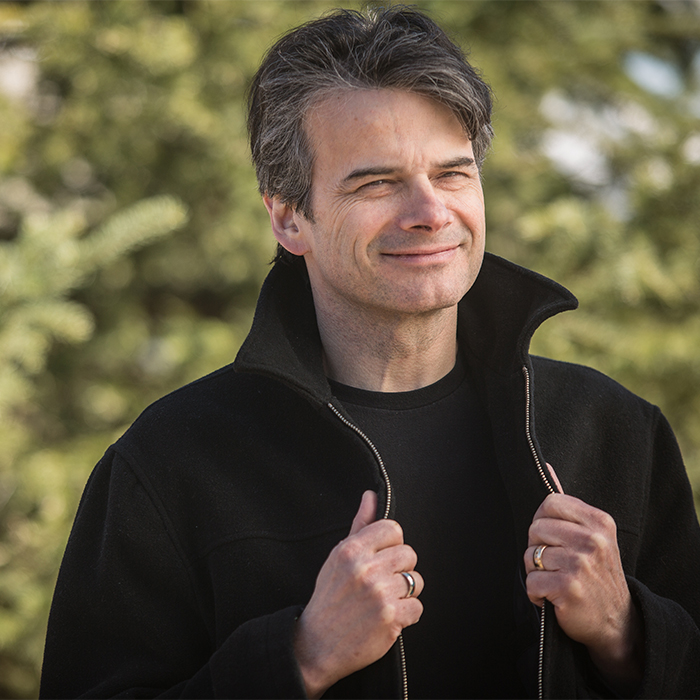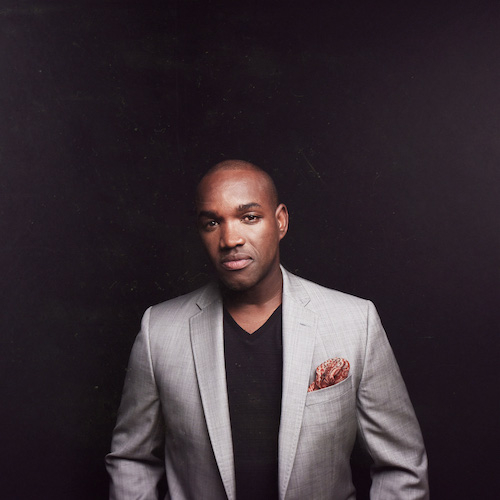by Jarrett Hoffman

On Saturday, March 7 at 8:00 pm in Edward W. Powers Auditorium, Fleischer and the YSO will be joined for the first time by tenor Lawrence Brownlee in “Spiritual Journey: The Road to Peace and Freedom.” The program includes arias, spirituals, and songbook standards, as well as a piece by Fleischer and his wife, comedian Heidi Joyce.
That work, Spiritual Journey, explores the history of the Civil Rights Movement. The orchestra will play arrangements of spirituals, ending with Battle Hymn of the Republic, and Brownlee will read excerpts from the speeches of Martin Luther King, Jr.
Making this performance all the more special is the fact that Brownlee (below) is a native of Youngstown. “We’re so lucky,” Fleischer said. “Larry is a mega superstar in the world of opera. He’s coming back to sing some arias and a couple of pieces with a swing choir called Youngstown Connection, which he was in during high school. And then he’s going to narrate Spiritual Journey, which Heidi and I wrote years ago for the National Symphony.”
Two other local choirs will also lend their talents to the evening: Singers Together and Simple Gifts Interfaith Choir. “We have a huge volunteer gospel choir — 160 voices — who are going to sing several pieces by themselves, collaborate with Larry, and with Youngstown Connection. And then everybody joins for Spiritual Journey at the end.”
The National Symphony Orchestra premiered Spiritual Journey in January of 1991, with narration by activist Yolanda King, daughter of Martin Luther King, Jr. and Coretta Scott King. “Heidi and I struck up a wonderful friendship with Yolanda,” Fleischer said. “She was booked to do the piece in Youngstown but tragically died of a heart attack.”
Fleischer called the speeches of Martin Luther King, Jr. “some of the most divine words ever written or spoken by a human being on Earth.” Not only are they uplifting, he said, but they “confront a terrible chapter in the history of our country.”
Together with the underscoring of spirituals, it makes for a “profoundly American” piece, Fleischer said. “And I can pretty much guarantee a tingle up everybody’s spine when they hear the ending. Of course we conclude with ‘Free at last! Free at last!’ as the music crescendos. It’s just so powerful, if I dare say so myself.”
Anyone who’s kept up with Fleischer’s career will know how multi-faceted he is. In addition to Youngstown, he conducts New York’s Hudson Valley Philharmonic and the Anchorage Symphony, but he’s also a noted composer in the genres of symphonic rock and world music fusion.
Are spirituals another comfort zone? “You know, it’s funny — for me, everything is comfortable, and nothing is,” he said, laughing. “I’m always feeling the challenge of whatever my next project is. I really consider myself an American musician, conductor, and composer. I’m very interested in the rich musical legacy of our own country, yet I conduct a lot of Brahms and Mozart too. So I’m first and foremost a classical guy, but I love my next adventure, and then the next one, and the next one.”
One of Fleischer’s many musical adventures was the opportunity to conduct a private concert for Pope John Paul II at the Vatican in 1993. And since the lineage of the papacy has been in the news lately with the movie The Two Popes, I asked Fleischer about that experience.
“It was like a dream,” he said. “I’m Jewish, but I’ve read some of the writings of Pope John Paul, and I think he’s one of the greatest popes in the history of the Catholic Church, with such insight into the human condition. And to meet him, perform for him, be blessed by him, and receive a medal for my achievements in music from him — I mean, it was just an incredible, incredible thrill.”
Published on ClevelandClassical.com March 2, 2020.
Click here for a printable copy of this article



